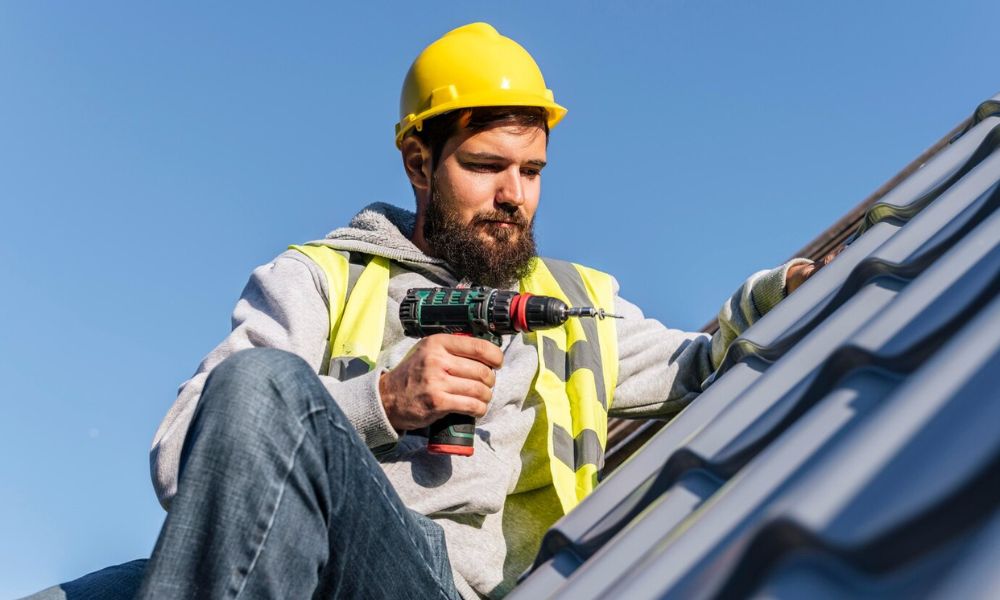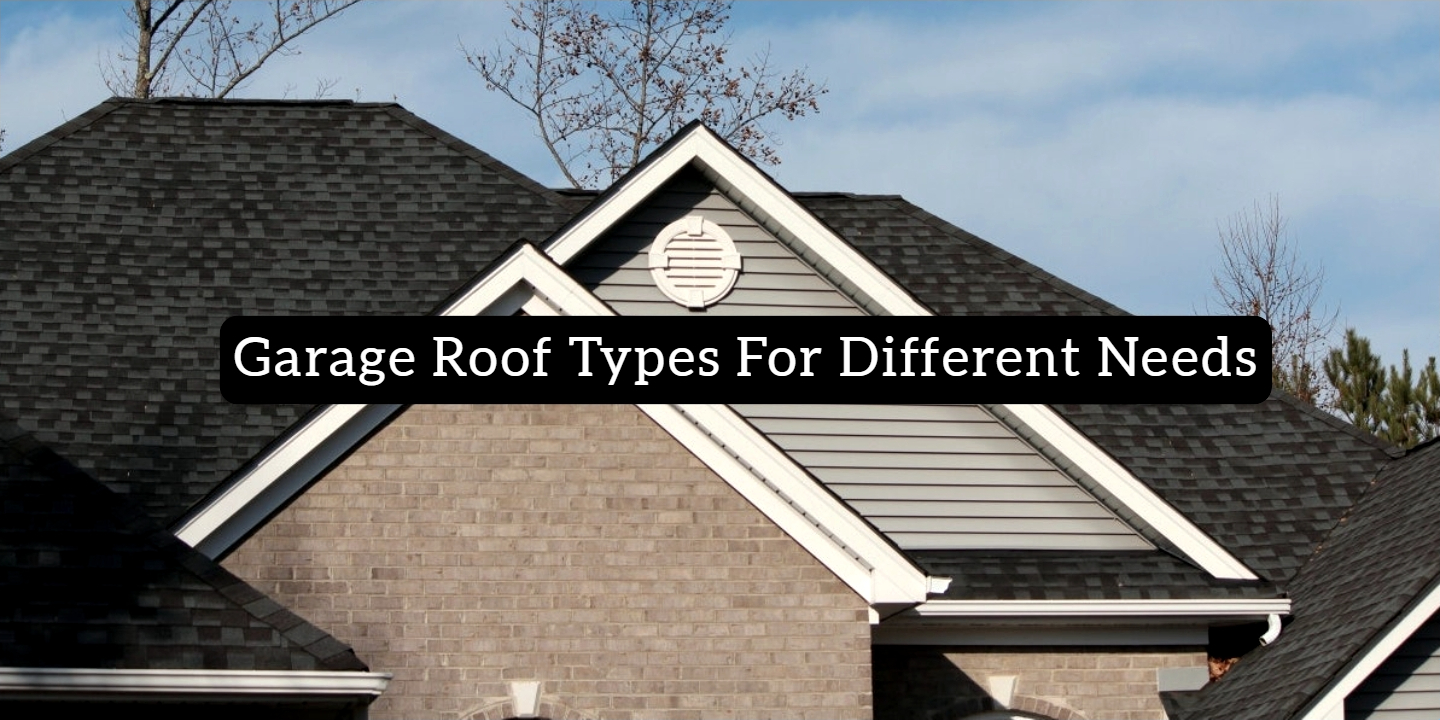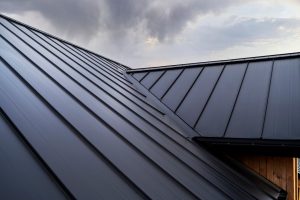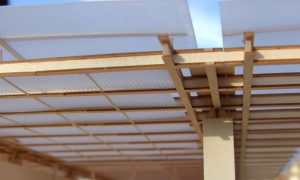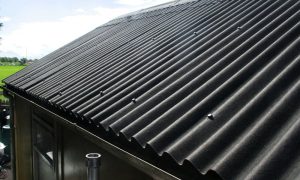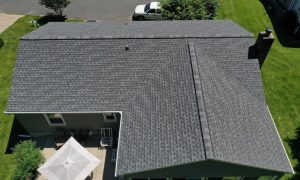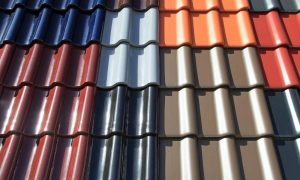Can’t decide on what roofing will fit your garage the best? We get it, it’s a big decision to make.
That’s why we’ve rounded up the best garage roof types for different needs you could consider. Picking a roof is not only about looks, it’s about finding a balance of cost and performance, and we help you do just that.
Whether you’re a budget-conscious DIYer or someone prioritizing durability in harsh weather, there’s an option for you. We’ll break down each type in simple terms, focusing on what matters most: how well it suits your needs and budget. Let’s dive in!
Steel Roofing
If you’re looking for a roof that combines strength, style, and minimal fuss, steel is a strong contender. While the initial cost might be higher, its extended lifespan and low maintenance needs can make it a cost-effective choice in the long run.
Pros:
- Built to Last: Steel roofs are champions of longevity, easily lasting 30+ years in normal conditions.
- Weatherproof: Forget about rain, snow, or even hail. Galvanized steel shrugs off corrosion and rust, making it ideal for harsh weather zones.
- Lightweight: Don’t let the strength fool you, steel roofs are surprisingly light. This translates to easier installation and less stress on your existing structure.
- Versatile: From classic to modern, steel roofs come in a wide range of colors and coatings to match your style and blend seamlessly with your home.
- Eco-Conscious: Many steel roofs are made with recycled materials, making them a sustainable option for environmentally-conscious homeowners.
- Supervision: These need minimal upkeep. Just an infrequent cleaning is all it takes to keep them looking their best.
Cons:
- The Price Tag: Such roofs come with a heftier upfront cost. However, its long lifespan and low care needs can offset the initial acquisition in the long run.
- The Sound of Silence (or Not): While steel itself is quiet, rain drumming on an uninsulated roof can create a noticeable din. Adding insulation or sound-dampening materials can address this issue, but it adds to the overall cost.
- DIY Difficulty: Installing a steel roof requires technical skills and tools. Unless you’re a seasoned DIYer, it’s best left to the professionals.
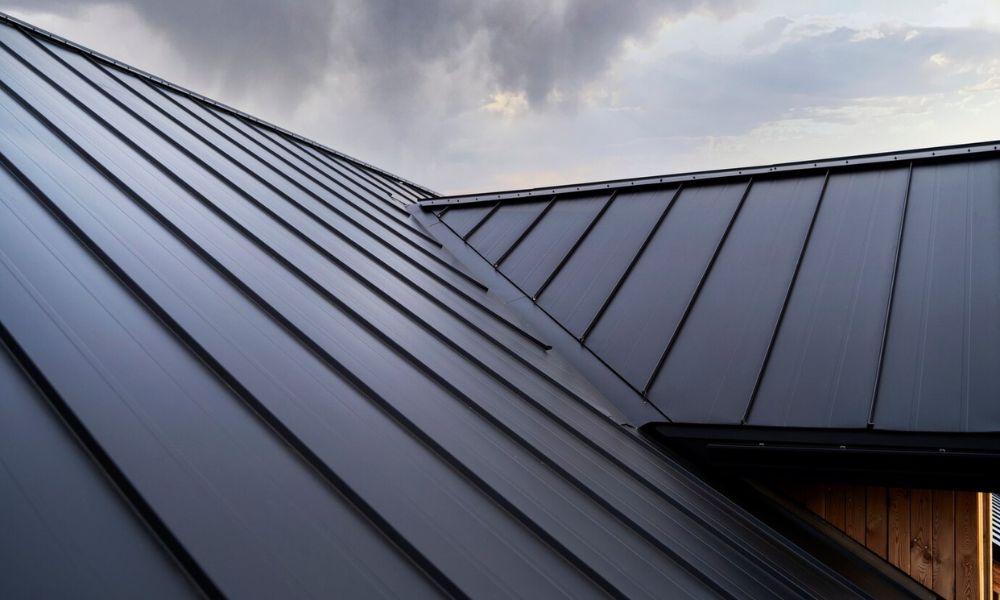
Who Benefits Most From It?
- Homeowners in harsh climates: If you live where the weather throws everything at you, steel’s durability will be your best friend.
- Eco-conscious individuals: If sustainability is a priority, steel’s recycled content and low upkeep make it a responsible choice.
- Those seeking low-maintenance solutions: Tired of constant roof repairs? Steel’s longevity and minimal upkeep will save you time and money in the long run.
You may also like: 15 Build Garage with Apartment Above (Ideas & Plans)
Plastic Roofing
If affordability is your primary concern, plastic roofing might be the answer. Made from light materials like PVC or polypropylene, it’s the most budget-friendly option on our list. Its light weight also makes it ideal for DIY projects or retrofitting existing structures.
Pros:
- Cost Effective: Plastic is generally the most affordable roofing material, making it a budget-friendly choice for garages, sheds, or temporary structures.
- DIY: Forget heavy lifting! Plastic sheets are incredibly lightweight and easy to handle, making installation a breeze for even novice DIYers.
- Thickness Options: You can pick from a range of thicknesses to match your prefs, from lightweight panels for lean-tos to sturdier options for harsher weather.
- Fire-Resistant (PVC): If fire safety is a concern, opt for PVC plastic sheets, which offer superior fire resistance compared to other plastic types.
- Durable: Some plastic types, like polycarbonate, boast a hard-wearing surface that can withstand moderate wear and tear.
Cons:
- Price Can Climb: While typically inexpensive, it varies significantly depending on the plastic type and thickness. High-quality, durable options might not be as budget-friendly as initially expected.
- Brittle in the Cold: Beware the frosty bite! Plastic sheets can become brittle and prone to cracking in freezing climates. Consider alternative materials if you live in areas with harsh winters.
- Environmental Footprint: Plastic is not an eco-friendly choice. If sustainability is a priority, consider metal or other recyclable materials.
- Limited Lifespan: Plastic roofs have a shorter lifespan, lasting 10-15 years. Be prepared for more frequent replacements.
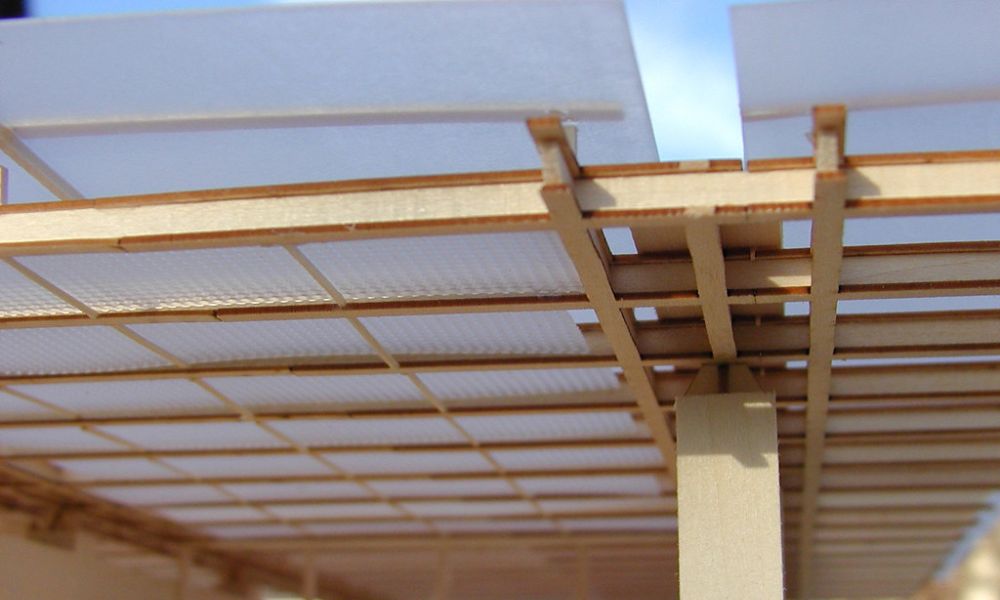
Who Benefits Most From It?
- DIY Buffs: If you’re handy and looking for a budget-friendly project, plastic roofing offers a manageable installation method.
- Budget-conscious homeowners: For temporary structures, sheds, or garages with limited use, plastic can be a low-cost solution.
- Those in mild climates: If you live in an area with moderate weather conditions, plastic roofing gives satisfactory protection without excessive wear and tear.
Check also: 7 Best Overhead Garage Storage Reviews
Fibre Cement Roofing
This one offers a classic, rustic aesthetic similar to wood, but with enhanced durability and fire resistance. It’s generally one of the best options for those who value aesthetics. However, its higher initial cost and potential fragility need to be considered.
Pros:
- Weather Warrior: It laughs in the face of the elements. It’s resistant to rain, snow, harsh winds, and even UV rays, making it ideal for coastal areas with salty air or regions with extreme weather.
- Firefighter: It offers fire-resistant properties, providing peace of mind in case of unexpected emergencies.
- Versatility: Want classic shingles or modern sheets? It caters to both! The variety of shapes and colors lets you adjust your garage’s look to match your style.
- Built to Last: This one has a lifespan of up to 60 years, making it a long-term investment that saves you money in the long run.
- Installation: Unlike some complex roofing materials, such sheets are relatively easy to install.
Cons:
- Costly: The initial cost per square foot is high.
- Fragile: While tough, it can be brittle and prone to breakage if mishandled during installation or impacted by heavy objects.
- Heavyweight: Its durability comes with a weight penalty. You’ll need to ensure your garage structure can handle the additional weight of such roofing.
- Maintenance Needs: It might require occasional cleaning and repainting to maintain its appearance.
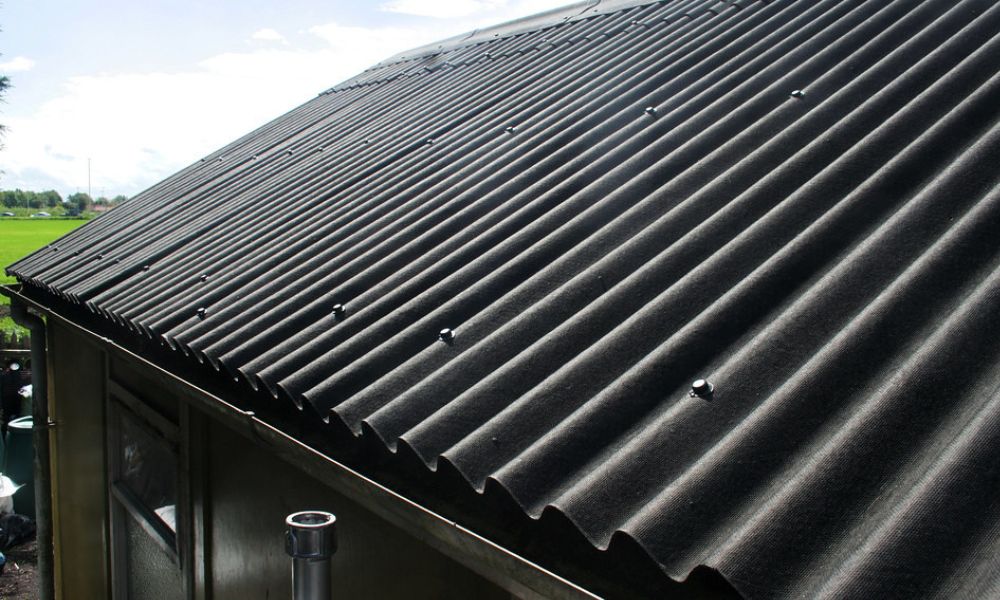
Who Benefits Most From It?
- Classy homeowners: Its resemblance to natural materials like slate or wood adds timeless charm to your garage.
- Those in harsh weather zones: If you face extreme weather conditions or live near the sea, its durability and resistance will provide superior protection.
- Eco-conscious individuals: It doesn’t need regular replacements and can often be recycled, making it a more sustainable choice.
You may also check: 7 Best Garage Thermometers
Asphalt Shingles Roofing
This type has been a roofing mainstay for centuries, especially for garages. One of the main reasons for that is simple building and inexpensive materials. But is it that good? Well, such roofing is known for its heat absorption, so it won’t work nicely if you live in an area with high temperatures. Or the place where it rains a lot.
Pros:
- Seamless Seal: Unlike other materials with individual panels, the melted seams form a watertight barrier, reducing the risk of leaks.
- Strength in Numbers: Pick thicker plies for increased durability. These bad boys resist tears and resist harsh weather conditions, making them suitable for most climates.
- Time-Tested: With proper care, these can last a good 20+ years, offering a decent lifespan for your investment.
- Budget-Friendly: Compared to some other options, it falls on the more affordable side.
Cons:
- Heat Hog: Beware the summer sun! The dark surface absorbs heat, potentially raising the temperature inside your garage. Consider extra insulation or reflective coatings to mitigate this issue.
- Heavyweight: Thicker plies come with a higher price tag, both in terms of material cost and installation labor.
- Flat Roof Blues: Pooled water can become a problem on flat bitumen roofs. Ensure proper drainage is installed to avoid potential leaks and damage.
- Fire Concerns: It’s not naturally fire-resistant. If fire safety is a priority, explore fire-rated bitumen options or consider alternative materials.
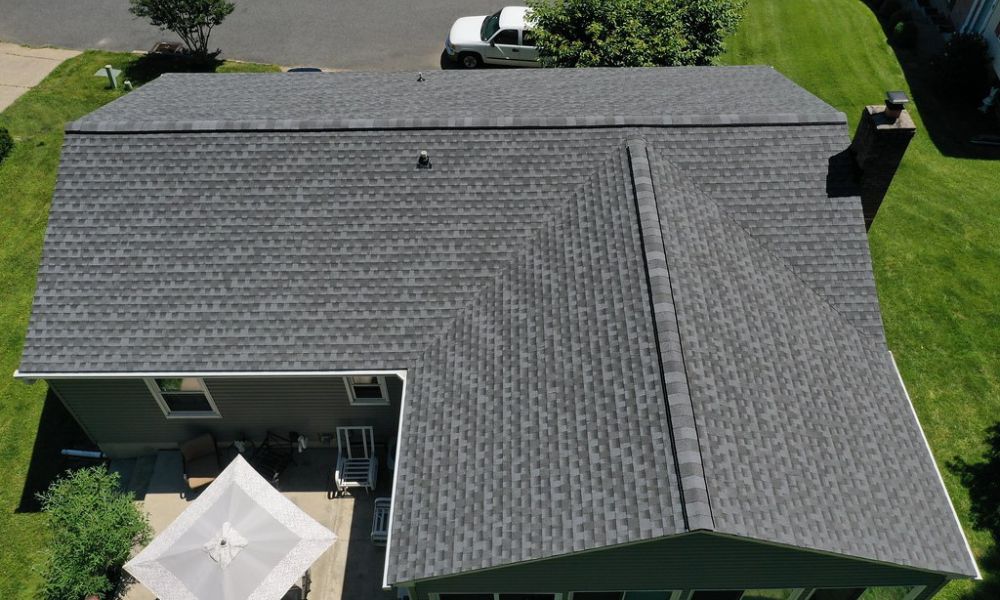
Who Benefits Most From It?
- Budget-conscious: If affordability is a top concern, bitumen offers a decent lifespan and performance at a competitive price.
- DIY enthusiasts (with caution): If you’re handy and comfortable working with bitumen’s heat-activated installation, it can be a DIY option. However, proper skills and safety precautions are crucial.
- Those with simple roof structures: Bitumen works well for basic, sloped roofs. If your garage has complex angles or curves, other materials might be more suitable.
- Moderate climate dwellers: In areas with mild temperatures, bitumen can provide adequate protection without excessive heat absorption issues.
Tile Roofing
Tile roofs can be made from diverse materials and are recognized for their refinement and ability to elevate the aesthetics of your entire property. But beyond the beauty, how do they perform functionally?
Pros:
- Longevity: They last from 50 to 100+ years.
- Durability: Such are resistant to harsh weather.
- Aesthetics: You can easily match them with your architectural style.
Cons:
- Cost: Such roofs are generally the most expensive option.
- Weight: These are heavy, putting additional stress on your garage structure.
- Installation: Installing these requires specialized skills and experience, which adds up to the check.
Who Benefits Most From It?
- Homeowners prioritizing aesthetics: These give your garage a polished premium look.
- Those seeking long-term investment: If you plan to stay in your home for decades, the durability and lifespan can justify the initial cost.
- Residents in moderate climates: These perform well in most climates.
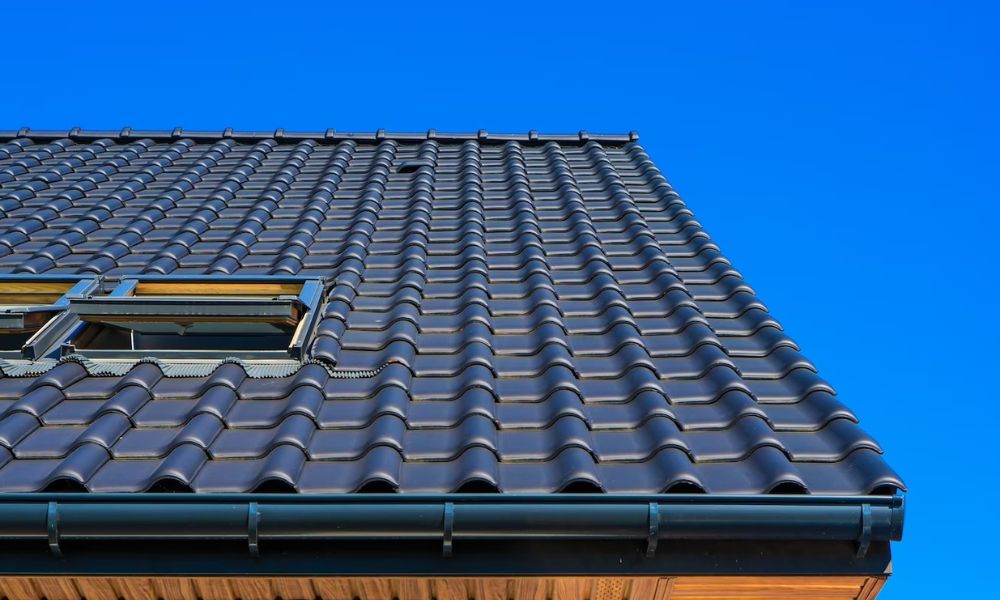
Have a look at: Waterproof Baseboard for Garage (7 Goods to Use)
Popular Tile Types:
Metal:
- Pros: Affordable, lightweight, easy to install, eco-friendly, long lifespan (50-70 years).
- Cons: Can be noisy in heavy rain, limited aesthetic options compared to other tiles.
Concrete:
- Pros: More affordable than metal or clay, diverse shapes, and sizes, fire-resistant.
- Cons: Shorter lifespan (25 years), heavy, longer installation time.
Clay:
- Pros: Beautiful classic look, very durable (60 years+), fire-resistant.
- Cons: Most expensive option, heavy, long installation time.
Stone:
- Pros: Unique and luxurious appearance, exceptional durability.
- Cons: Extravagantly expensive, heaviest option, requires specially reinforced structure.
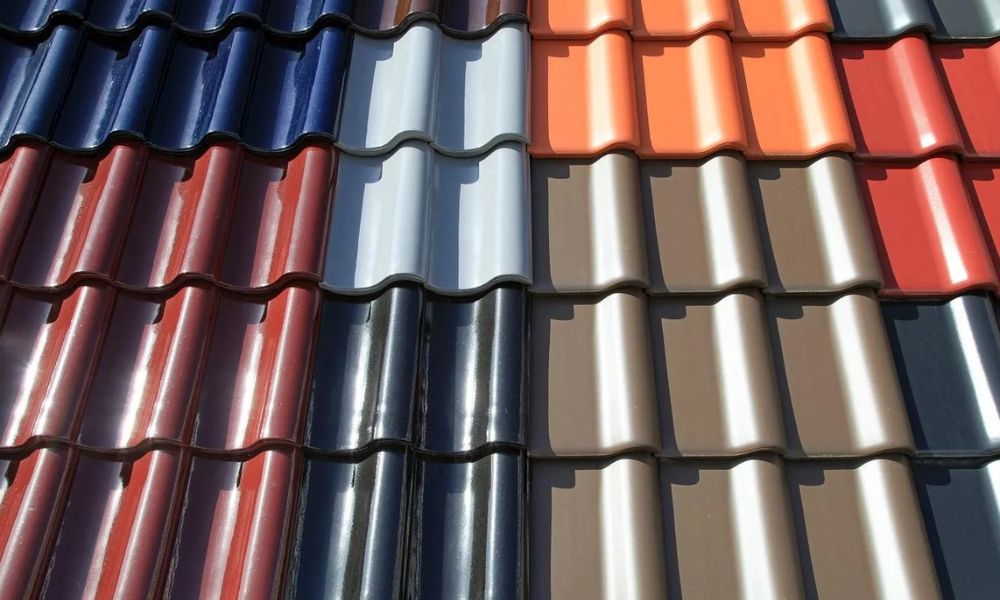
FAQ
What Is The Cheapest Roof For A Garage?
While budget is important, don’t forget long-term value! Generally, asphalt roofing offers a cost-effective solution. However, keep in mind their shorter lifespan and potential maintenance needs compared to other options
Consider long-term factors beyond just the initial cost. Research lifespan, maintenance needs, and potential energy savings.
What Type Of Roof Is Most Reliable?
Reliability depends on various factors. Here are some top contenders:
- Metal: Offers exceptional durability and weather resistance, making it ideal for harsh climates. However, it comes with a higher initial cost.
- Tile: Clay, concrete, or metal tiles provide excellent durability and long lifespans, but installation can be complex and expensive.
- Fibre Cement: A versatile option with good weather resistance and fire-resistant properties. It’s a good balance between affordability and performance.
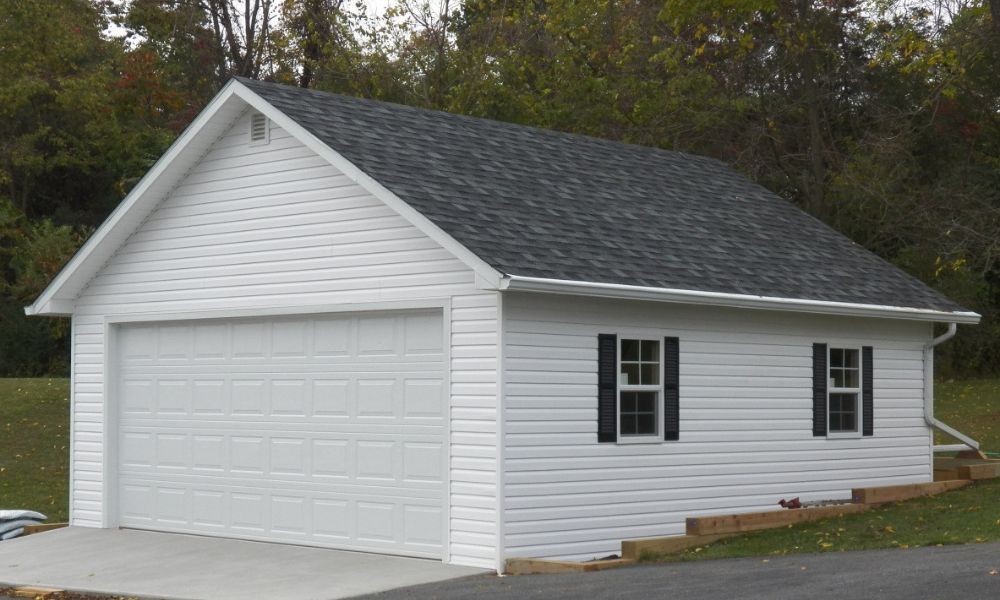
How Long Do Garage Roofs Last?
The lifespan of a garage roof varies quite a lot. Here’s a rough estimate for common materials:
- Asphalt: 20+ years
- Steel: 30+ years
- Concrete: 30-60 years
- Fibre Cement: 30-60 years
- Plastic Roofing: 10-15 years
Should A Garage Roof Be Vented?
Yes, ventilation is crucial for most garage roofs. It helps stop moisture buildup, mold growth, and excessive heat, which can damage your roof and belongings. The specific ventilation needs depend on your roof type, climate, and garage usage. Consult a roofer for proper ventilation recommendations and installation.
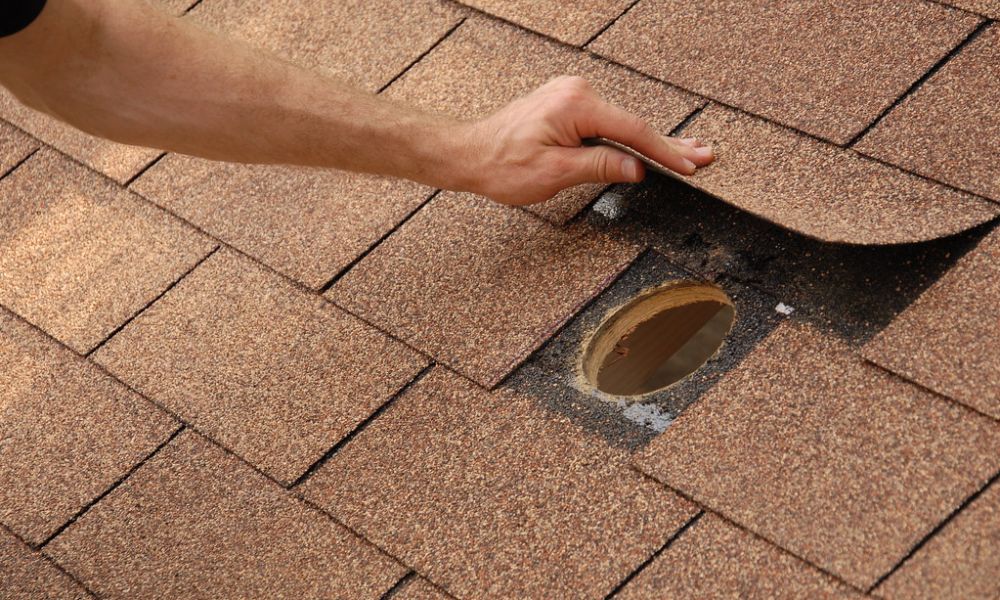
Does A Garage Roof Need Insulation?
Whether you need it or not depends on your climate and how you use a garage. If you plan to use it as a workspace or store temp-sensitive items, insulation is crucial for regulating temps and preventing condensation. Discuss your specific needs with a pro to determine the best insulation option for your garage.
Can You Diy A New Garage Roof?
While it’s not impossible, DIYing a new garage roof is generally not recommended for several reasons:
- Safety concerns: Working with roofing materials can be dangerous, especially on sloped roofs. Improper installation can lead to leaks, structural damage, and even injuries.
- Technical expertise: Installing different roofing materials requires specific skills and knowledge to ensure proper waterproofing, ventilation, and flashing.
- Warranty implications: Many manufacturers void warranties if the roof installation isn’t done by certified professionals.
